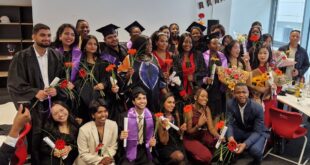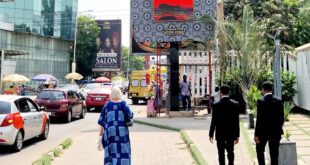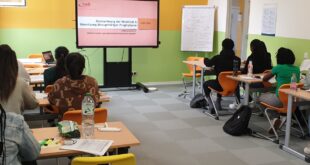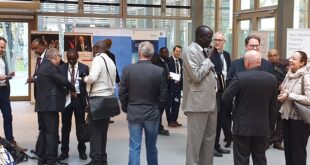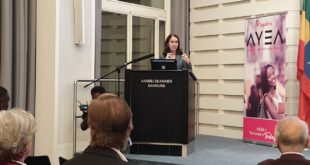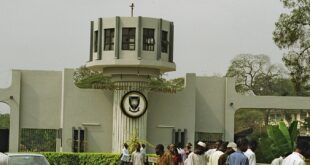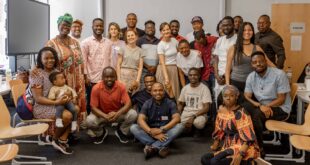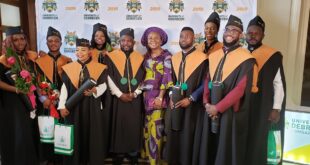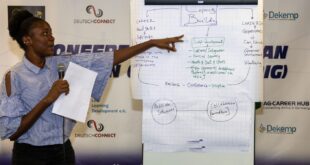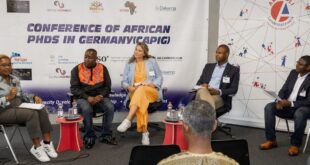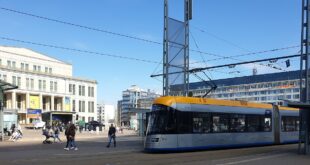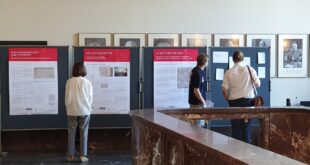ADDIS ABABA, Ethiopia, 18 May 2021 -/African Media Agency(AMA)/- Much has been written about the importance of advancing digital literacy on the African continent, especially among its younger citizens. With more than half of the world’s under-25s expected to live in Africa by 2050, mobilising and inspiring this youthful population to be active participants in the global digital economy is central to the continent’s future.
For Soliyana Gizaw Hunde, ten year-old coder and recent winner of the inaugural AfriCANCode Challenge, a love of maths and science and a strong community spirit inspired her to develop a fun and engaging way to practice math and raise awareness of COVID-19 related health protocols.
“Being part of the AfriCANCode Challenge has been fun, and winning the national and overall competition was very exciting,” says Soliyana, who lives with her parents in the Ethiopian capital Addis Ababa. “It has motivated me to do more and dream big.”
The AfriCANcode Challenge was introduced after the 2020 SAP Africa Code Week programme shifted to an all-virtual format in the wake of the global pandemic. The competition challenged youth aged 8 to 16 to develop a game using the Scratch coding language to reimagine school and education, or answer the question “How will your tech change the future of education?”.
Participants from 22 countries made it to the final round of the competition, and the winner was announced in early 2021. All of the top three winners were girls, with Soliyana crowned overall winner at a virtual prize-giving ceremony in February.
Soliyana says she was inspired to learn coding after seeing the projects her cousin, a software engineering student at one of the local state universities, was doing. “When I was eight, my cousin helped me take a short coding training course at a local centre. Since then, I have watched instructional videos on YouTube, and I have been motivated to keep practicing.”
After the pandemic forced the Ethiopian government to close schools, Soliyana decided to apply her coding skills in service of her community by participating in the AfriCANCode Challenge.
“When we started staying at home due to the pandemic, I heard how it was affecting people in our community and what we could do to protect ourselves and our loved ones. I decided to develop my Mathstainment game to create awareness about COVID-19 and offer a simple and fun way to practice maths.”
Mathstainment, the educational game developed by Soliyana, was built using the Scratch programming language. It asks a series of maths questions that leads a character on the screen ever closer to personal protective equipment (PPE) for each correct answer. After a few incorrect answers, the player has to start over. Maths questions are posed at varying difficulty levels, ranging from ‘Easy’ to ‘Difficult’.
Asked what lies ahead for the young coding champion, Soliyana says: “I want to be an astronomer. I want to know how the universe works.”
Alexandra van der Ploeg, Head of Corporate Social Responsibility at SAP, says Soliyana and her fellow participants at this year’s AfriCANCode Challenge are inspirations to youth across the continent. “The innovation and community-minded spirit displayed by this year’s participants point to a bright future for Africa’s citizens. It is also hugely encouraging to see the high ratio of female participants, whose ingenuity saw all three top place finishes claimed by girls.”
She points to progress over the past few years with expanding access to coding teaching and digital literacy opportunities for the continent’s youth. “SAP Africa Code Week and the AfriCANCode Challenge mobilises hundreds of partners in the public and private sector who rally around the urgent task of empowering Africa’s youth with essential digital skills. As we continue into an uncertain future, this investment into youth skills development will pay huge dividends over the coming years and decades.”
© African Media Agency (AMA)
 THE AFRICAN COURIER. Reporting Africa and its Diaspora! The African Courier is an international magazine published in Germany to report on Africa and the Diaspora African experience. The first issue of the bimonthly magazine appeared on the newsstands on 15 February 1998. The African Courier is a communication forum for European-African political, economic and cultural exchanges, and a voice for Africa in Europe.
THE AFRICAN COURIER. Reporting Africa and its Diaspora! The African Courier is an international magazine published in Germany to report on Africa and the Diaspora African experience. The first issue of the bimonthly magazine appeared on the newsstands on 15 February 1998. The African Courier is a communication forum for European-African political, economic and cultural exchanges, and a voice for Africa in Europe.



